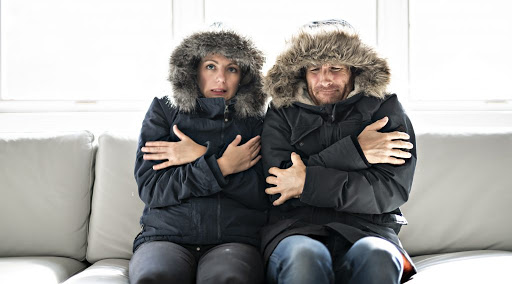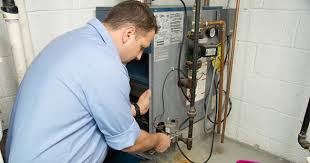
A central heating unit or perhaps a common household involves a lot of intricacies for any layperson or woman to understand. These systems typically toss tantrums during the fall, when they are pressed into service for heating after a lazy spell of the summer season. As a best practice, you should switch on the heater in the summer from time to time. This makes sure that the system will not give up when switched throughout the fall.
However, there’s nothing to worry about if any problems turn up. Thankfully, the majority of problems connected to central heating systems are simple to fix. When you are stuck to something major, there are trustworthy pipes mechanics and heating engineers to offer a service to your problem quickly and successfully.
The Thermostat Controls Aren’t Working
Possibly you forgot to switch on the thermostat. Make sure it is set between 17 and 20 degrees centigrade, which is the ideal temperature variety. If the radiators still stay cold, access the programmers and set both the central heating (CH) and hot water (HW) on.
In the next step, check if the electricity supply to the system is alright. Take a look at whether the heating fuse is blown.
If the heating fuse is fine, turn your attention to the motorized diverter valve. It generally stays located really near the boiler and controls the flow of the heated water. First, turn it off and after that on once again to look after your issue.
If the issue still continues, your pump may have gone defective. This gadget pressurizes warm water from the circulation pipeline to enter into the taps and radiators. Clog and mechanical failure are 2 typical issues in this aspect. Turn the pump off and see if there’s any difference. Clogging needs an extensive tidy of the dirt inside. Nevertheless, pumps can also stop working due to caught air. There is a small nut to release the excess air. When the fluid begins coming out while launching trapped air, you will know that all excess air has been launched and it is time to close the nut and switch on the device again to learn whether it works.
The radiator is warm just at the bottom
This is a common issue with a simple solution– bleed the radiator. Turn off the pump to prevent air from getting into the system. Place an empty bucket at the corner bottom of the radiator. There is a square nut typically made from the brass at the upper corner of the radiator. Utilize a radiator key to turn the nut to the right angle anti-clockwise till hot air gets away the radiator. When this takes place, unclean water gets transferred into the pail. You will discover a radiator key at any regional hardware store and without this tool, you can not bleed a radiator. As soon as the bleeding is done, close the valve appropriately, and ensure that there are no signs of leakage.

There’s Mold in Your Heating System
This takes place because of the sludge build-up inside your radiator. You require to flush that out. Take apart the radiator from the wall and flush it with running water. If this does not resolve the problem, you might have a blocked pipe, damaged pump or an inferiorly designed heating unit
An unusual sound originating from the heating unit.
Weird sounds coming from your boiler is likewise called kettling. If you get noise when the pilot burner fires up for the very first time, it might be because of trapped air. Vent excess air through the air bleed screw. If that does not fix the concern, make sure that enough water enters the boiler tank. The issue might likewise occur because of sludge accumulation. Flush the system to repair the problem. If there is a pressure system, make certain it is set to the best level.
The over-flow keeps continuing
Normally, a water tank located at the loft feeds water to your heating unit when you have traditional and system boilers. The ball-cock inside the tank gets jammed to develop a constant overflow problem. You require un-jamming the ball-cock to repair the problem.
If you face this problem with an immersion tank, make certain that only a pipes specialist manages the issue.
An extreme drop in heating unit pressure
Have a look at your boiler’s pressure gauge when confronted with this specific problem. Various factors are understood to develop this problem ranging from water leak to excess air taken out from the system after the radiators were bled. Top-up the system with water when you see a drop in the pressure right after the upkeep service of the system. Certified engineers experienced suggest including the excess water through the filling loop. If you do not feel extremely positive about managing this well, you must call a professional to do it for you.
